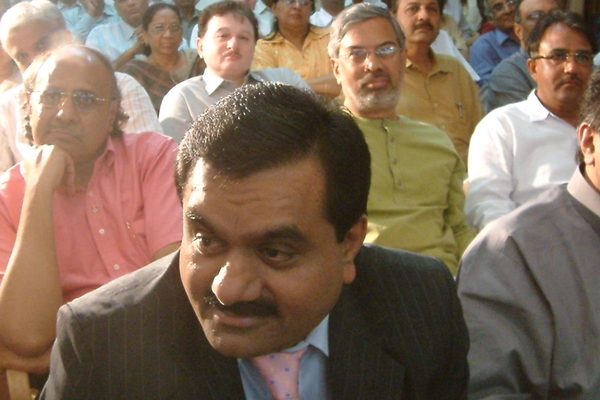Indian billionaire Gautam Adani, one of Asia’s richest people, has been charged by US prosecutors for allegedly bribing Indian government officials in order to get favourable terms on energy contracts in the world’s most populous country.
According to reports, the contracts to produce solar energy in India “were projected to bring in more than $2 billion in profit” to his multinational conglomerate the “Adani Group’. The Group has called the allegations by the US authorities ‘baseless’ and has denied any wrongdoing. It also said it will seek legal advice on the matter.
But this is not the first time Adani and his multinational business empire have been in the headlines. A timeline of the group’s activities over the past several years reveals a number of other controversies.
These include accusations of environmental damage, violation of tribal laws, preferential treatment, violation of Indian securities law and stock manipulation and accounting fraud.
But the latest indictment involving the US Department of Justice (DoJ) and the US SEC is, perhaps, the most damaging to the person and the group’s profile. Here are some of the immediate as well as long-term consequences.
Shares plunge
Within hours of the US Attorney’s Office’s announcement of the indictment last week, markets reacted aggressively and, according to some reports, billions were wiped off the Group’s values.
The FT reported that share values in the Adani Enterprises dropped by a fifth, with a loss of around $9 billion in a single day. Another $11 billion in market capitalisation were also lost by other entities of the Group, taking its total loss to around $20 billion in just 24 hours.
Reuters put the total drop in shares value at $27 billion, and gave more details about losses in different entities that make up the conglomerate.
Other companies linked to the Group were also affected. For example the Australian-listed investment firm GQG partners saw a drop of 20% on Thursday, as reported by Fortune.
According to the report there were market reactions in India too, as the country’s “NIFTY 50, which tracks the 50 largest companies on India’s National Stock Exchange, fell 0.7%.” Both Adani Enterprises and Adani Ports make up part of the NIFTY 50.
In a separate blow to the Group, Kenyan president William Ruto announced he had directed officials to cancel deals with the Adani Group, worth around $2.6 billion, as reported by the BBC.
Reputation damaged
But beyond numbers and figures on global stock markets, the indictment could have more long-term and, perhaps, more serious consequences for the Group’s reputation as a multinational business enterprise.
The seriousness of the situation is partly highlighted by the length and the amount of details given in the press release by the US Attorney’s Office. It’s more than 1,200 words.
According to a Reuters commentary, the US indictment could also mean that the Group will find it a lot harder to raise funds in the future, as banks will be keen to review its credit and will hesitate to engage with it.
Michael Kugelman of the Wilson Center, an American think-tank, told the BBC the latest charges are another “body blow” to Adani, who over the last year tried hard to recover from a separate allegation of stocks manipulation made against him by US short-seller Hindenburg Research.
“Mr Adani has been trying to rehabilitate his image, and try to show that those earlier fraud allegations leveled by the Hindenburg group were not true, and his company and his businesses had actually been doing quite well. There’d been a number of new deals and investments made over the last year or so, and so this is just a body blow coming to this billionaire who had done a very good job of shaking off the potential damage of those earlier allegations,” Kugelman said.
But the damage may not be limited to Adani’s personal profile and his business empire, and could actually make it harder for other India-based or Indian-owned enterprises to engage with the rest of the world. This whole saga makes international investors doubtful.
According to an FT analysis, the US charges “raise new questions about the probity and integrity of Indian regulators and business leaders, while casting doubts on the nation’s preferred narrative of an ascending economy that offers a safe alternative to a corrupt and capricious China.”
It’s political, too
Adani has not shied away from revealing his political affiliations, both at home and abroad. But the latest controversy could put some of his powerful friends in a difficult position.
Back home in India, his strong ties with Prime Minister Narendra Modi and the ruling BJP party are well-established. But some experts believe the US indictment is a serious matter and “is going to influence the political economy of India.”
The problem for Modi is that Adani is closely interlinked with India’s economy. According to the BBC: “He operates 13 ports (30% market share), seven airports (23% of passenger traffic), and India’s second-largest cement business (20% of the market).”
He has also promised to invest billions more in energy and infrastructure, employs more than 450,000 people and his business empire affects the lives of millions of others. He has also promised to invest $10 billion in the US energy sector.
Adani has proven to be a resilient businessman. HIs multinational enterprise has recovered from controversies in the past too. We will have to wait to see how he deals with this latest one.
















